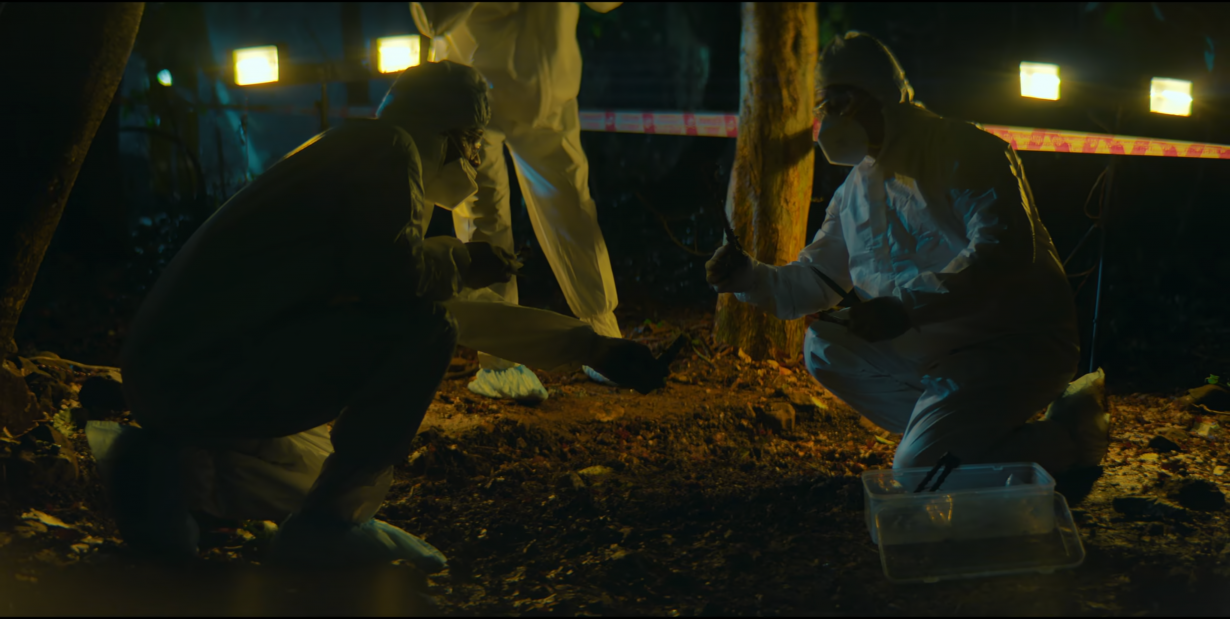In India, true-crime documentaries are deployed to reinforce patriarchal fantasies
Beyond their salacious details, two recent true-crime documentaries about particularly heinous murders offer an example of how contemporary life for a woman in India remains viewed through, and irreparably shaped by, a patriarchal lens. Curry & Cyanide: The Jolly Joseph Case (2023; directed by Christo Tomy) and The Indrani Mukerjea Story: Buried Truth (2024; directed by Uraaz Bahl and Shaana Levy), both streaming on Netflix, present a concoction of drama, scandal, sex and the grotesque that appeals to the voyeur in all of us. In other words, they make for good TV. But they also unwittingly offer a study in the extent of patriarchy’s hypocrisy, a commentary on India’s class system, an exposé of how the mass media has become addicted to sensationalism in order to transform news into entertainment and a spotlight on society’s double standards. All realities that, by the way, are engineered further to put women in ‘their place’.
Curry & Cyanide follows the case of Kerala-based Jolly Joseph, who, in pursuit of a life of wealth and luxury, allegedly murdered six people, including a two-year-old, over a period of 14 years, by mixing cyanide into their food. The Indrani Mukerjea Story, meanwhile, follows the eponymous media mogul’s alleged murder of her daughter, Sheena Bora. While family dysfunction was at the heart of the sensational media coverage of the case, it also served to peel back the gloss coating the lives of the rich and famous, who, for India’s very large middle class, remain objects of both aspiration and extreme jealousy. Least of the many sordid details of the murder was the fact that Mukerjea tried to pass off her daughter by a previous marriage as her younger sister, who, just before her alleged murder, was in a relationship with Mukerjea’s stepson (her third husband’s son by his first wife). While we never hear from or see Jolly Joseph in Curry & Cyanide, Mukerjea is extensively interviewed and knows how to work the cameras. Having been released on bail, her dancing lessons, yoga moves, travel, a tell-all book and public speaking engagements are on display for her 1.5 million followers on Instagram.

At this point, it almost does not matter whether or not either of these women are guilty. Once news of the murders went public, and was consequently sensationalised in the media, the narrative around both cases quickly narrowed to how Joseph and Mukerjea, both of humble origins, were ambitious gold-diggers who had had multiple relationships and were thus of loose morals. Similar insinuations are made by interviewees in the documentaries, be it by Mukerjea’s former friends, or her daughter by her second husband, or Joseph’s sister-in-law. This scrutiny of personal lives, irrespective of its relevance to the alleged crime, is a given, as is society’s assumed right to judge them according to vague moral standards. In a culture that exoticises and idolises the mother (most obviously as the symbol of the nation), that one could murder a child and the other her own daughter were denounced in public debate as going against the laws of nature and nurture.
The ethics of true-crime documentaries and podcasts such as Serial can be shifty, especially when cases are still in the courts, as is the case with both Joseph’s and Mukerjea’s. But what these two documentaries do highlight is the difference in treatment when the accused is a woman rather than a man. For instance, Dahaad (2023), a fictionalised adaptation of the case of a serial killer from Karnataka who also used cyanide to murder his female victims, and The Serpent (2021), based on the life of serial killer Charles Sobhraj, portray the crime they committed as an aberration, a personal shortcoming in one man. Whereas for Joseph, Mukerjea and others like them, the documentaries swiftly become a commentary on what happens when women in general are allowed to do as they please. In public consciousness, there was never going to be any redemption for them. The documentaries only seem to assist in this stereotyping, strengthening the social conditioning that determines how women are seen, treated and talked about. Joseph and Mukerjea become cautionary tales about what happens when women dare to be ambitious, defy patriarchal expectations and cross the limits set for them by society. It does not matter that one is a middle-class woman in a back-of-the-beyond village and the other a wealthy public figure in glitzy Mumbai. Their damnation is the same, irrespective of class, caste or financial status. And therein lies the problem for all independent-minded women, whether accused of crime or not.
Deepa Bhasthi is a writer based in Kodagu
